Doctors Day 2023: Inspiring Stories of Courage and Compassion
M3 India Newsdesk Jul 01, 2023
As we reflect upon the immeasurable value doctors bring to our lives, we are reminded of the profound impact they have in promoting well-being, saving lives, and inspiring hope. Doctors Day serves as a reminder of the vital role that doctors play in our society, and we take this as an opportunity to express our heartfelt appreciation for their tireless efforts and the countless lives they touch.
On this special occasion of Doctors' Day, we at M3 India take a moment to express our heartfelt appreciation for the unwavering commitment, relentless hard work, and inspiring stories that some doctors shared with us. Amidst the challenges and adversities faced, doctors have displayed remarkable resilience, compassion, and expertise. From long hours spent in the operating room to compassionate interactions with patients and families, their commitment to providing quality healthcare is truly commendable. Penned below are some extraordinary journeys and valuable experiences of some of our doctors.
Dr Lakshmi Vasudevan (MS Anatomy, MD Paediatrics, Fellowship in genetics, Mumbai)
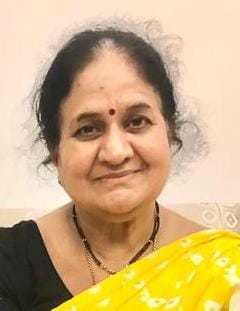
I joined Seth G. S. Medical College/K.E.M. Hospital in 1967 to pursue a medical career. After 5 and a half years of M.B.B.S. education and training, I completed my DCH and M.D. Paediatrics over the next three years. For a major portion of my career, I taught in medical college. In 2002, I spent a year at Duke University Medical Sciences (DUMS) in North Carolina, United States, as a visiting Associate Professor, gaining expertise in cutting-edge clinical and laboratory genetics. Thereafter, I continued as a clinical geneticist at the Indian Council of Medical Research (ICMR)’s centre in Parel, Mumbai. I run a private medical practice in human genetics. I have been a medical professional for 50 years. I hereby share my experiences and my trials and tribulations.
Medicine is one of the most challenging professions. The duration of study, long gruelling working hours, and the need to keep abreast of the latest advances in the field by attending conferences so that one is able to provide the best patient care and treatment can often be nerve-wracking. During one’s entire professional career, in my experience, one seldom gets sufficient sleep as one must be committed to patient care 24/7.
In the early stages of one’s career, one is often financially stressed, both in service as well as in private practice, the profession is not lucrative. One is sometimes compelled to accept financial support from one’s parents or other near-and-dear ones.
In medicine, one networks with members of one’s fraternity as we spend many years learning and training together. I recount below two experiences and incidents in my career.
It is part of the practice of medicine to deal with death on a regular basis. In my career, two incidents involving death stood out for their emotional impact. When the serial bomb blasts occurred in 1992 in Mumbai, for lack of space, dead bodies were piled up outside the mortuary in full view of the public. One of the bodies caught my attention. It was that of a young college-going girl with her college bag hanging on her shoulders. This sight brought tears to my eyes.
The other one was an old Parsi gentleman who had come to the casualty searching for his missing young son. Outside the casualty, he saw his dead son’s body on a stretcher bleeding from his forehead. The old man came running to the casualty asking for cotton and bandage. This poignant incident is etched into my mind even today.
During my residency, I took care of a young male patient on a respirator who had acute onset of paralysis. Despite three weeks of wholehearted efforts to save him and round-the-clock care, the patient died. I was devastated. My Professor, who was watching me, consoled me saying that only treatment is in the hands of doctors, and not life. This lesson gave me the emotional strength to deal with such tragedies.
Nevertheless, the greatest joy a doctor as a doctor can have is when he or she saves a life. My advice to those who plan to embark on a medical career is to have the patience to work long hours, learn to develop techniques to combat stress and be ready to sacrifice life’s small pleasures and remain satisfied even if the remuneration is not as one would have hoped. Those who want to choose medicine need to be committed to the service of humanity.
Dr Achala Mohta (MBBS, Ex-PCMO, Sardar Patel Medical College, Bikaner)
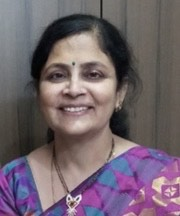
As a devoted rural doctor, I dedicated my career to serving the underserved, especially women facing neglect and discrimination during critical life events.
Menstruation was shrouded in shame and secrecy in the secluded villages where I practised. Women were often confined to unhygienic spaces and treated as impure and untouchable during this natural process. Witnessing their suffering compelled me to advocate for menstrual hygiene education and debunk age-old myths perpetuating the taboo.
The plight of girl children was equally heart-wrenching. Families favoured sons, neglecting the fundamental rights of their daughters to education, healthcare, and even nutrition. Many young girls would visit my clinic, their eyes filled with aspirations but dreams quashed by the societal norms that bound them to early marriages or household chores. It ignited a flame within me to campaign for gender equality and empower these young minds to break free from the chains of prejudice.
Perhaps the most agonising experiences revolved around infertility cases. Women would bear the brunt of the blame for their inability to conceive, while their partners remained unquestioned. Society's cruel judgments and the pressure from families took a toll on these women, leaving them emotionally scarred and mentally burdened. I stood by them, offering support, medical guidance, and counselling, determined to challenge the unjust perceptions.
I was blessed to have a life partner who mirrored my dedication to uplifting the marginalised throughout my journey. My husband, a compassionate doctor, provided unwavering support, driving me to persist in adversity. Together, we formed a formidable team, tackling social stigmas and striving to create a more inclusive and equitable world.
Though retired, memories of those times still linger, nudging me to reflect on the strides made and the miles yet to cover. I carry those experiences with me, a constant reminder of rural women's unyielding strength and resilience.
Ultimately, my journey reaffirmed the need for solidarity among healthcare professionals, policymakers, and communities. Only through collective efforts can we dismantle the barriers that hold back rural women, helping them embrace their innate potential and contribute to a brighter, more progressive society.
Dr Jimmy Patel (DNB General Medicine, DM Gastroenterology, Chennai)
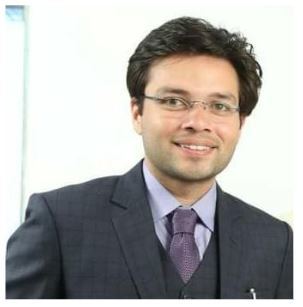
I think it's different for different stages. You lose out on your young life studying. It is also tough to deal with patients who try to modify your treatment according to what they think is right and then complain that your treatment did not help.
And, of course, we work really hard to treat and save every life but we are humans and we do lose patients. It’s hard on us when that happens but what hurts is when relatives or next of kin blame you for that loss. It’s truly heartbreaking to see the violence committed against doctors.
This is not all. No one realises but we doctors barely get any family time due to our extended work hours. We miss out on birthdays, anniversaries and even well-planned vacations. Such is the demand of our profession.
Doctors reel under unrelenting work pressure, they work for inhumane hours, suffer from severe burnout, and undergo sleep deprivation and anxiety but despite all of these struggles their profession demands them to put up a brave front, one that lacks any fragility.
Ironically, official statistics show that the mental health of doctors is long compromised and that’s an area of deep concern. As we celebrate them this Doctor’s Day, it is also important to know that beyond their love for their duty, some things are left unspoken.
Learning medicine and becoming a doctor is nothing short of having a superpower. But this superpower of detecting or curing a disease comes with tonnes of responsibilities and expectations. The worst is, the helpless feeling when we stare in the face of incurable diseases such as cancer, genetic disorders, and HIV amongst others. Not being able to cure a disease, despite being the flagbearer of medicine yet giving all your efforts to the same is one of the most difficult parts of being a doctor.
Being a doctor is a dream come true as it is one of the noblest professions, and we do take an oath to selflessly contribute our life towards serving patients. However, it often takes a toll on us too. With a lack of flexibility, hectic work schedules and patient variations that keep us on the stand all day, according to me, the hardest of all is not having the indulgence to make a mistake. A doctor can never be prepared for what lies ahead and patient psychology affects you.
Most of the time, people think that with so many patients every day, we are challenged with apathy. However, that is nowhere true. How every successful case relieves us, critical and unfortunate cases tear us apart as well and the toughest part here is to confront and accept that and again go on with the next patient with vigour.
While good care was being provided to patients suffering from COVID-19, the toughest part about being a doctor in those times was to see the physical and emotional pain that a patient and their families went through during the recovery process. As doctors, we were geared up and united in the fight against the virus in those tough times until a vaccine was available.
Being an emergency physician during COVID times was the toughest job in a hospital. Getting exposed to the patients directly not knowing if it was a COVID patient or not, was a challenge in itself. Wearing all protective measures and ensuring every patient was taken care of and didn't get infected by other patients were challenging.
At the end of the day, the thoughts linger, what if I have acquired the infection today and I go back home and infect my family? But that's secondary, I'm still happy that on the other side, I saved one's life, as that is my duty.
Nothing was static during that situation; there are new challenges every day. Most COVID positive patients were kept in the isolation wards, which means if their condition deteriorates, doctors and nurses are the only people they see in their last hours. Seeing your patients die in the critical care wards did put a lot of psychological stress.
The emotional toll was much worse as many doctors were themselves staying away from their families to protect them. Adding to this was the fear of getting infected. It did linger on our minds and we continuously had to fight hard to keep such negative thoughts away.
However, the silver lining was that the recovery rate in India was higher than the active cases. This gave us the motivation to work even harder and make the nation coronavirus free at the earliest. As nothing is more important than saving one’s life during these difficult times.
Dr Alpana Mohta (MD Dermatology, DNB (DVL), Rajasthan)
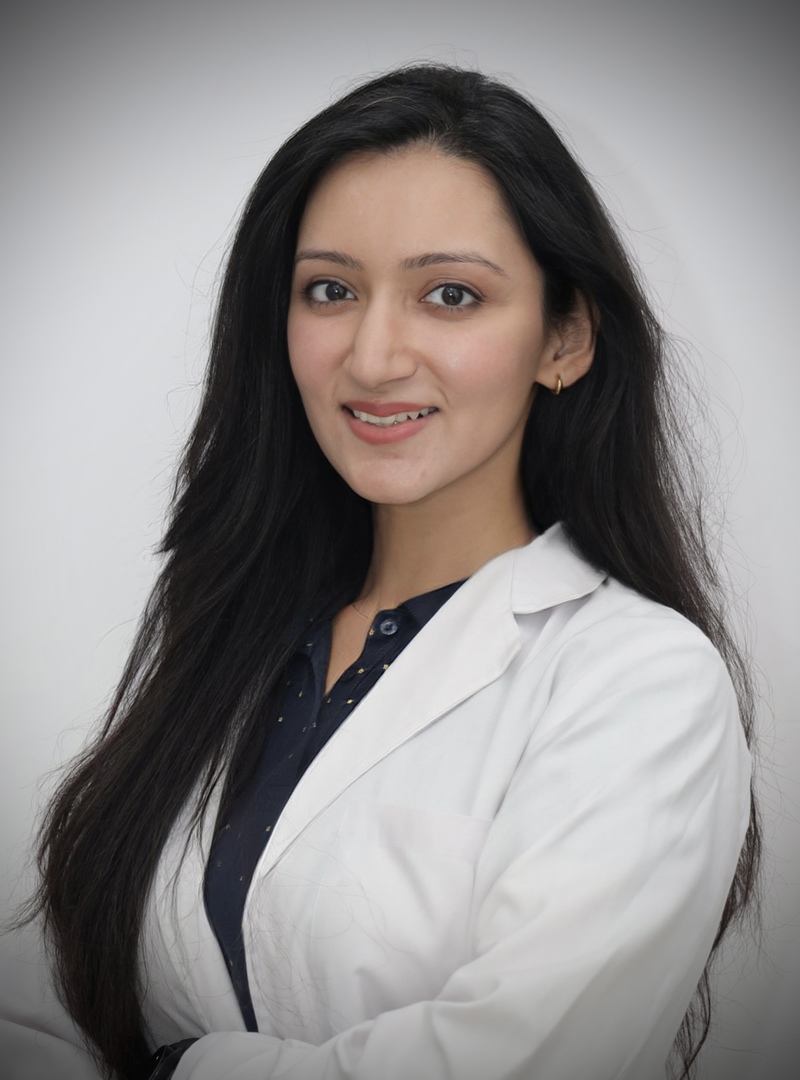
From the moment I stepped into the world of medicine, I knew I had stumbled upon something extraordinary. While my peers marvelled at the skilful hands of surgeons, it was the clinical brilliance of physicians that captured my heart. Like a detective solving crimes, they pieced together clues, spoke to witnesses (or patients), and uncovered hidden truths. Little did I know that one particular group of specialists would steal the show in my medical journey: Dermatologists.
Driven by curiosity and a growing fascination, I set my sights on the field of dermatology. Throughout my three-year residency program, I delved into the realms of dermatopathology, infectious diseases, and pediatric dermatology. With each passing day, my passion grew stronger.
Life seemed to be on an upward trajectory, as I achieved milestones and garnered international scholarships. However, just as my career was gaining momentum, a storm raged through my world. It was the second wave of the pandemic that took away my beloved father. The blow was devastating, not just for me but for my entire family. Our hearts ached, and grief cast its long shadow over our lives.
In the midst of my personal turmoil, I couldn't help but question the emptiness that lingered within me. Despite all my achievements, accolades and publications, it felt as if something vital was missing. It was in this moment of introspection that I realised the true purpose of my journey.
As I grieved and slowly began to heal, I resolved to build a digital footprint under the name of www.dralpana.com. With a burning desire to combat the rampant spread of misinformation, I set forth on a mission to educate and empower. The internet, once a vast sea of confusion, would now be infused with clarity and truth.
My struggles as a young dermatologist have taught me that life's path is unpredictable and often marked by pain. But through it all, I've discovered that the most profound journeys are the ones driven by empathy and a genuine desire to make a difference.
So, armed with the memories of my father's unwavering support and the love of my resilient family, I march on, determined to bring light to the darkness and heal those in need.
Dr Sayan Bhattacharyya (MD Microbiology, Associate Professor, AIIH&PH, Kolkata)
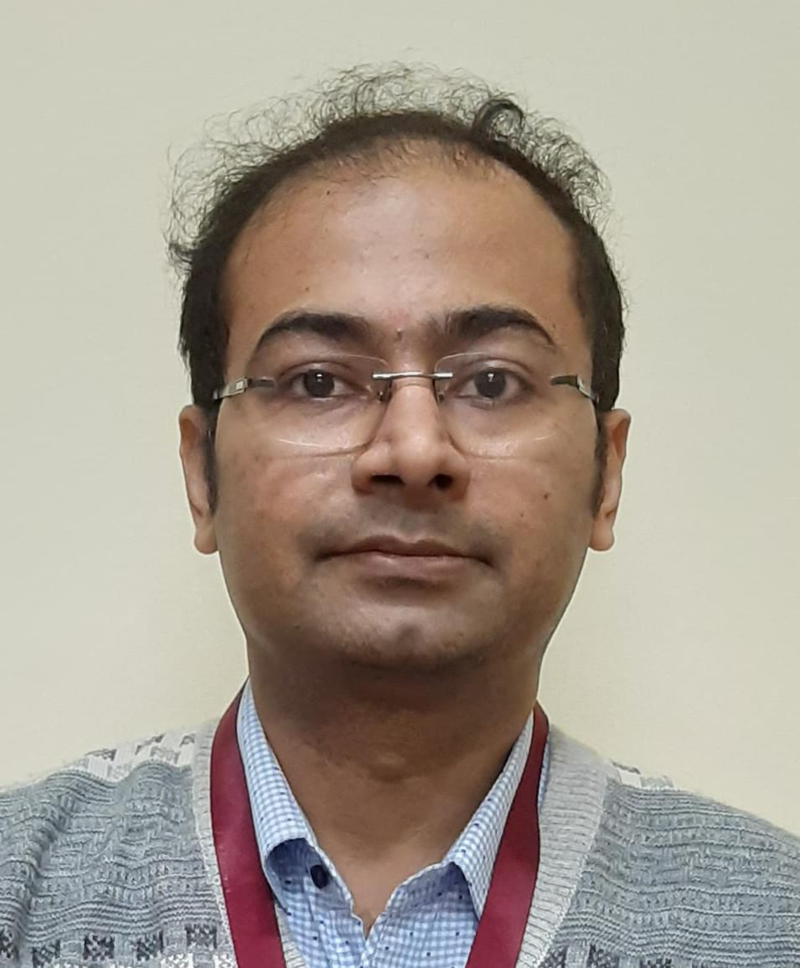
A doctor always has to face many hardships. I had to face an uphill task of facing and negotiating hard luck, while pursuing MBBS, MD or even after that. My life has been full of struggles but I have always stood up to it and faced every challenge head-on whenever possible. I have been helped a lot in this regard by my wife.
There are many stories where patients and their kin have been happy with my efforts and sometimes they were not so happy. However, overall the patients were contented. There are many stories of friendship and rapport that I have shared with my seniors, batchmates as well as juniors.
I still remember my first day in college when we were accorded a Fresher's welcome by our loving seniors who always tried to guide me in the right direction. I also fondly remember having food together, or making wall magazines and posters for social events with my friends in College. Sometimes I had to face a lot of negativity at a professional level, but that has strengthened me as a person and as a Doctor. All these memories make my journey special.
Life itself is a great teacher. My profession has taught me to be hard-working, punctual and innovative. Being ambitious is also good, albeit up to a limit.
I am still learning many skills and trying to evolve as a good human being which is the prerequisite to being a good Doctor.
Dr AP Sethia (M.S. General Surgeon, National Awardee, IMA Doctor of the Year 2018)
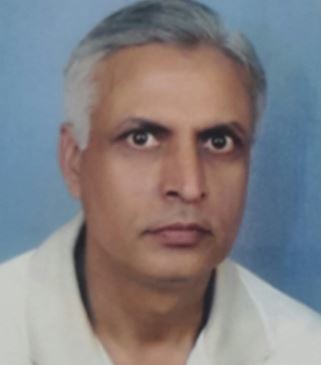
In my journey of more than four decades in the medical profession, I have had many opportunities to observe the changing attitudes of patients and physicians towards each other very closely.
While earlier there was a lot of dedication amongst the doctors, the patients also used to get their treatment done with full confidence. But today, patients consider the doctor as a businessman or a service provider and analyse every aspect of treatment from the same perspective as we analyse the merits and shortcomings of any other purchased item or paid service.
Is it possible to accurately evaluate medical services in this way?
No. Because, the outcome of the treatment of any ailment depends on a number of factors, the condition in which the patient reached the doctor, being the most significant parameter. In critically ill patients, despite the best efforts of doctors, the chances of survival are very low. In such a scenario, a situation of conflict is likely to develop, between the family members of the patient and the treating doctor. Because of this, the medical profession is going through its most difficult phase. The trust deficit between patients and doctors is increasing rapidly.
Why is this happening?
The lack of primary health education in the public is responsible for this. Even educated individuals are not much knowledgeable about the prevailing systems of health care and the limitations under which present-day doctors have to work. It is high time that elementary education about health is imparted at the high school level.
Bringing medical services under the Consumer Protection Act has also led to a great trust- deficit between the doctor and the patient. This law is like a double-edged sword for doctors, because, fearing legal action, doctors try to get all the tests or investigations, suggested in the medical curriculum or protocols, for diagnosis, so that they can not be blamed for errors in diagnosis or treatment.
The third reason is that due to rising inflation day by day, very few patients are in a position to afford private medical services. We have a very low prevalence of personal insurance policies for health. Very few families plan a budget for their health needs. So, on the one hand, there is anxiety due to illness, on the other hand, there is stress to pay the hospital bills.
The expectations of patients and their attendants are beyond any logic, nowadays. The unfortunate incidents of violence that used to happen occasionally, are now more frequent. As a result of this, a good number of doctors in private practice have changed their attitude and method of providing services. Critically ill patients are usually referred to higher centres for fear of death and consequent violence. Even the next generation of successful professionals is not keen, on taking up this profession.
If the current trend of violence against doctors continues, it will be difficult to find good doctors in a decade or two. The public has to understand that doctors are an integral part of the society. And no civilisation can survive with such a callous attitude towards the custodians of its health..
Developing good relationships between patients and doctors is the need of the hour. This can be done with patience, understanding and a positive attitude.
In today's materialistic society, it is a mirage to expect the medical profession as purely a social service, without any reasonable profits. However, there is a need to develop a system of transparent hospital charges.
Replacing the skills gained by years of efforts of the surgeon with robotic devices and efforts to make the operations flawless is a commendable step, but moral education is also necessary to prevent the degradation of human values. The vanishing trend of 'family doctor' is also weakening the trust between the doctor and the patient. And there should be an initiative to revive it.
The neo-culture of 'doctor-friend' is a good beginning, but here too, the 'Lakshman Rekha of discipline should always be kept in mind, otherwise, it will take only a few moments for the sacred relationship of doctor-friend to get shattered.
Dr Komal N. Chavan (Medical Director, Consultant at Chavan Maternity & Nursing Home, Mumbai)
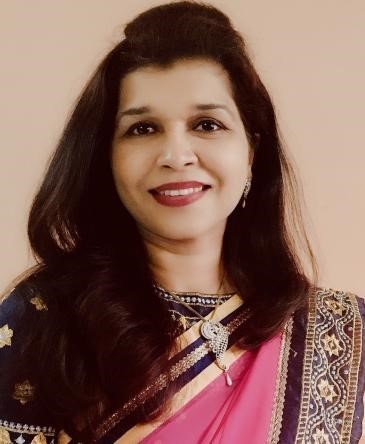
My dream of becoming a doctor is not just the pursuit of a great career but a pursuit of happiness too. Throughout my 31 years of medical journey, I have gained a plethora of wisdom and insights that have shaped my practice and overall approach to patient care. If I were to offer advice to young doctors embarking on their careers, I would emphasise the following points:
Never stop learning: Medicine is an ever-evolving field, and it is crucial to stay updated with the latest advancements and research. Dedicate time to continuing education, attending conferences, and engaging in active self-learning to provide the best care possible.
Compassion and empathy: Treat each patient with compassion, empathy, and respect. Remember that they are vulnerable and may be going through challenging times. Take the time to listen to their concerns and involve them in their care decisions.
Collaboration and teamwork: Emphasise and foster teamwork within healthcare settings. Medicine is a collaborative field, and teamwork can significantly enhance patient outcomes. Collaborate with interdisciplinary teams, value their expertise, and encourage open communication.
Continuity of care: Strive to provide continuity of care, which means maintaining an ongoing and comprehensive relationship with your patients. This entails being accessible, coordinating care across different specialities, and following up regularly.
Ethical practice: Establish strong ethical principles and adhere to them rigorously. Always prioritise patient well-being, informed consent, confidentiality, and honesty. Ensure that your actions align with the highest standards of professionalism.
Self-care: Recognise the importance of self-care for both your personal and professional well-being. Medicine can be demanding and emotionally challenging, and taking care of yourself helps prevent burnout. Prioritise work-life balance, engage in activities outside medicine and seek support when needed.
Embrace humility: Despite extensive training, always acknowledge that you don't know everything. Be open to learning from your superiors, colleagues, and even patients. Embrace humility, as it encourages growth, fosters better relationships, and improves patient care.
Communication skills: Develop strong communication skills as they are essential in effectively explaining medical information to patients, conveying empathy, and building trust. Good communication ensures patient satisfaction, compliance, and better health outcomes.
Adaptability: Medicine is a dynamic field, and being adaptable is crucial for providing quality care. Be ready to adjust to new evidence-based practices, changes in healthcare policies, and technological advancements.
Practice self-reflection: Engage in regular self-reflection to improve your practice continuously. Assess your strengths, weaknesses, and areas for growth. Seek feedback from mentors and peers to identify areas of improvement and address them actively.
The principles and values that have guided me in my practice include integrity, compassion, patient-centeredness, and professional growth. By staying true to these principles, I believe I can provide the highest quality care while striving for continuous improvement.
National Doctors' Day serves as a poignant reminder of the immeasurable value that doctors bring to our lives. Let us celebrate their achievements, honour their contributions, and express our deep appreciation for their unwavering commitment to the noble profession of healing. Each doctor has a story to tell or a story that will always remain with them. From the joy of witnessing a patient's recovery to the emotional weight of difficult decisions, doctors have stood at the forefront of healing, offering comfort and hope in times of great uncertainty. Today and every day, M3 India salutes and thanks all our doctors for their remarkable service. Happy Doctors' Day!
Disclaimer- The views and opinions expressed in this article are those of the authors and do not necessarily reflect the official policy or position of M3 India.
-
Exclusive Write-ups & Webinars by KOLs
-
Daily Quiz by specialty
-
Paid Market Research Surveys
-
Case discussions, News & Journals' summaries